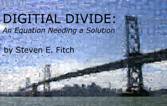
SPORTS
MEDIA







PODCAST

an
online, athletic community

Article Manager


Amateur Sports
subsidiary of S.C. Fitch
Enterprises, Inc.
4710 Lincoln Hwy,
Suite 350
Matteson, IL 60443
708.201.1781 voice
708.231.8266 fax

|
You can also catch us at:
just click at icon below



Powered by
|
 |
.jpg)
FINANCIAL AID
Frequently
Asked Questions
 Why should I apply for financial aid? Why should I apply for financial aid?
The cost of a college education is very expensive and becoming more so every
year. It is worth your time and effort to find out if you qualify for aid.
 What is the FAFSA? What is the FAFSA?
The FAFSA is the Free Application for Federal Student Aid. It asks for the
student-athlete's family's financial information so financial need may be
determined. Financial need is defined as the difference between college
expenses and the student-athlete's family's expected contribution. To
determine the student-athlete's family's contribution, the federal
government uses a formula called the Federal Methodology which takes into
account the student-athlete's family's income, assets, debts, size of
family, number of family members currently enrolled in college, years until
parental retirement, and other expenses.
You must fill out the FAFSA in order to start the financial aid process.
Colleges use the federal government's determination of financial need to
determine the award package from the school.
 What is the Expected Family Contribution (EFC)? What is the Expected Family Contribution (EFC)?
The Expected Family Contribution (EFC) is the amount the student-athlete's
family is expected to contribute towards their college expenses. The EFC is
determined by the federal government and based on the information the
student-athlete provides on the FAFSA. Once the student-athlete has received
their EFC, the EFC amount should be subtracted from their total expected
college expenses to determine financial need.
Cost of Attendance or Budget
Less (-) Expected Family Contribution (EFC)
= Financial Aid Eligibility or Need
The EFC remains the same regardless of college costs, though the financial
aid necessary may vary depending on college costs.
 What is an SAR? What is an SAR?
Within four to five weeks after mailing your FAFSA, a Student Aid Report
(SAR) will be sent to you with Federal Pell Grant eligibility information
and the results of your financial aid need analysis. It will also state your
Expected Family Contribution (EFC). When you receive the SAR, check it for
accuracy and make sure that the financial aid office of each school you are
applying to has received a copy.
Each school will subtract the Pell Grant and EFC from the cost of attending
their school to determine the amount of financial need you have for their
school. Once they determine your need, they will create a financial aid
award based on grants, loans, and work study to meet that need.
 What is a Pell Grant? What is a Pell Grant?
A Federal Pell Grant is a monetary gift to qualified undergraduate students,
primarily those with the most financial need. Eligibility is determined by
the FAFSA. The Pell Grant is a fixed amount determined each year by federal
budget appropriations and is awarded to eligible students. The schools may
either apply the Pell Grant funds to the student-athlete's education
expenses, pay the student-athlete directly (usually by check), or combine
these two methods. The school must notify the student-athlete in writing how
and when they will be paid and how much their award will be. Schools must
pay the student-athlete at least once per term, and institutions that do not
use traditional term schedules must pay the student-athlete at least twice
per academic year.
 What is the difference between the Perkins and the Stafford loans? What is the difference between the Perkins and the Stafford loans?
The Federal Perkins Loan is a fixed-interest-rate loan administered by the
college financial aid office. Repayment begins nine months after the student
graduates, leaves school or drops to less than half-time status. The
Stafford Loans are federal government loans, with low, annually adjusted,
variable rate interest, offered by private lenders such as banks, financial
institutions and the student-athlete's chosen school.
Repayment of principal on the Stafford Loans begins six months after
graduation or when enrollment drops below half time. The government pays
interest for the subsidized loan until repayment begins. The borrower pays
all interest charges for the unsubsidized loans, which may be deferred and
capitalized (at extra cost to the borrower). The amount the student-athlete
may borrow is fixed, and is determined by your academic standing.
Visit
FinAid.org or
FAFSA.com for more information on financial aid for
student-athletes and their families.
| NOTE: We are proud to announce that for
the entire month of December, S.C. Fitch Enterprises, and all of its
affiliates including Amateur Sports News Network, ASNN365.com, and
Amateur Sports Gallery will be assisting
Connection for Abused Women and their Children (CAWC) on
our web site. |
 |
Here is your opportunity to stop hating
the media and actually become it!
We are always looking for additional personnel.
Click here if you are
interested.
If you would like to submit a story,
score, stats, or even photos,
click here.

 View
my Online Calendar
Amateur Sports Event Calendar View
my Online Calendar
Amateur Sports Event Calendar

|
 |

 

Digital Divide Book Available
at
 &
&


Excellent Book - Must Read!

Business

Opportunity!

SPIRITMAN

George Caribbean Soul
Your Island on Wheels
Genya Harley

Reduce your insurance cost TODAY!!!
Be sure to check out our
affiliates page - click here!
|
 |
![]()


![]() View
my Online Calendar
Amateur Sports Event Calendar
View
my Online Calendar
Amateur Sports Event Calendar

![]() &
&
![]()
